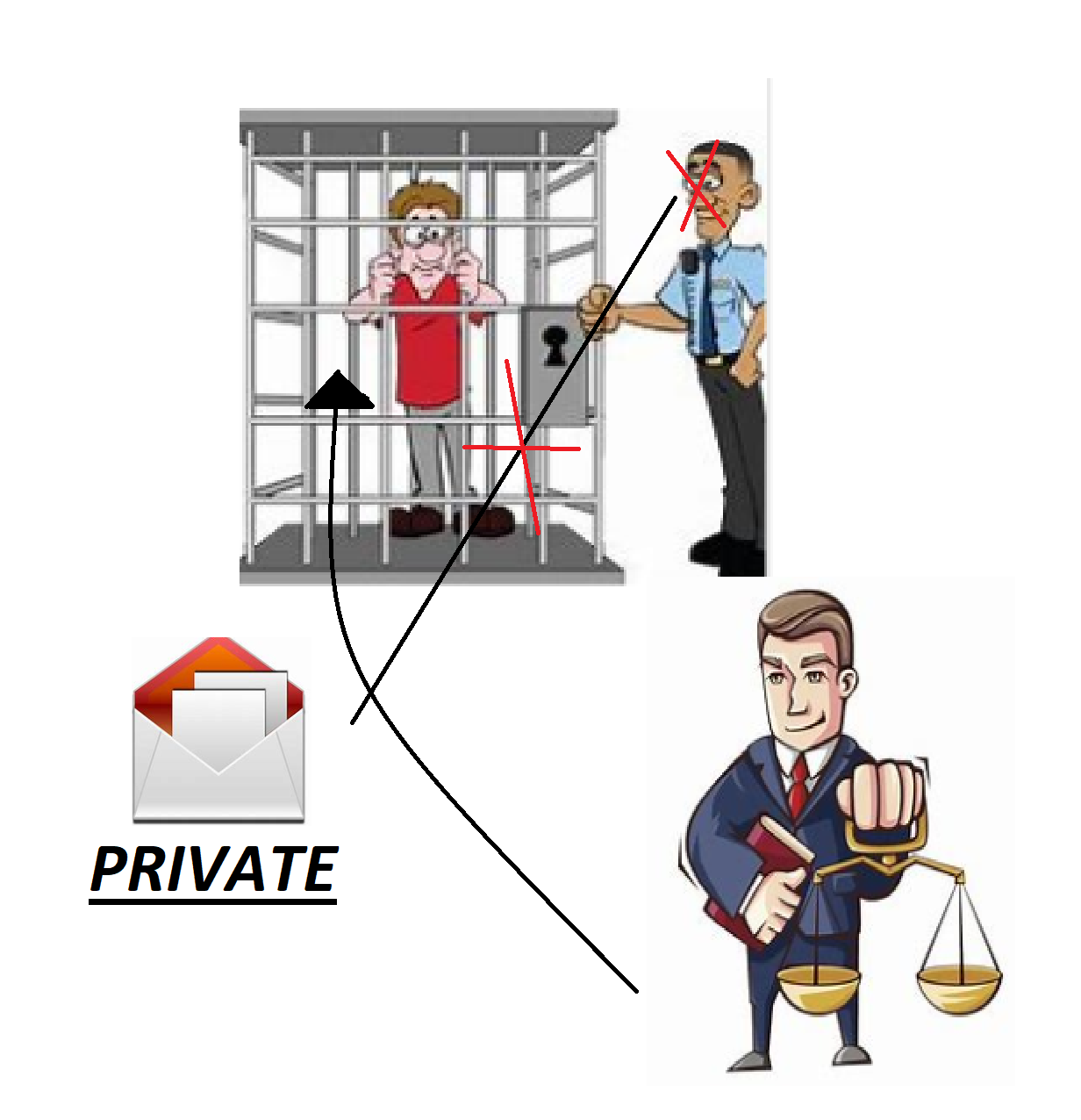R (Daly) v Secretary of State for the Home Department [2001] UKHL 26
Citation:R (Daly) v Secretary of State for the Home Department [2001] UKHL 26
Rule of thumb:Can legal letters between a prisoner and their lawyer be read by prison officials? No, these are private. If the prison read these it is a human rights violation.
Background facts:
The basic facts of this case were that Mr Daly’s room was being searched, with a lawful right to do so, but the prison service were therefore gaining access to Mr Daly’s confidential legal advice.
Judgment:
The Court held that there had to be a facility made available where Mr Daly could have mail from solicitors kept confidentially from the prison service – the Court held that Mr Daly’s Article 8 Right to privacy had been violated in this situation.
The Court further held that there are some human rights which exist for human which have not as yet been recognised by society – this does not mean that they do not exist, just that they have not been recognised.

Ratio-decidendi:
‘Any custodial order inevitably curtails the enjoyment, by the person confined, of rights enjoyed by other citizens. He cannot move freely and choose his associates as they are entitled to do. It is indeed an important objective of such an order to curtail such rights, whether to punish him or to protect other members of the public or both. But the order does not wholly deprive the person confined of all rights enjoyed by other citizens. Some rights, perhaps in an attenuated or qualified form, survive the making of the order. And it may well be that the importance of such surviving rights is enhanced by the loss or partial loss of other rights. Among the rights which, in part at least, survive are three important rights, closely related but free standing, each of them calling for appropriate legal protection: the right of access to a court; the right of access to legal advice; and the right to communicate confidentially with a legal adviser under the seal of legal professional privilege. Such rights may be curtailed only by clear and express words, and then only to the extent reasonably necessary to meet the ends which justify the curtailment.’ Lord Bingham
‘whether (i) the legislative objective is sufficiently important to justify limiting a fundamental right; (ii) the measures designed to meet the legislative objective are rationally connected to it; and (iii) the means used to impair the right or freedom are no more than is necessary to accomplish the objective’ and ‘in law context is everything’, Lord Steyn.
‘The truth is, I think, that some rights are inherent and fundamental to democratic civilised society. Conventions, constitutions, bills of rights and the like respond by recognising rather than creating them’, Lord Cooke
Warning: This is not professional legal advice. This is not professional legal education advice. Please obtain professional guidance before embarking on any legal course of action. This is just an interpretation of a Judgment by persons of legal insight & varying levels of legal specialism, experience & expertise. Please read the Judgment yourself and form your own interpretation of it with professional assistance.

